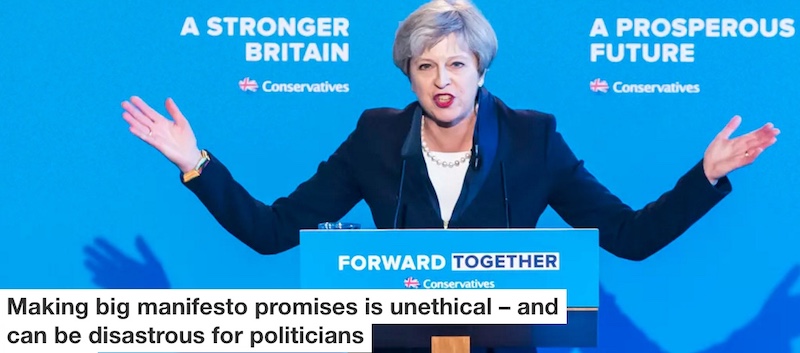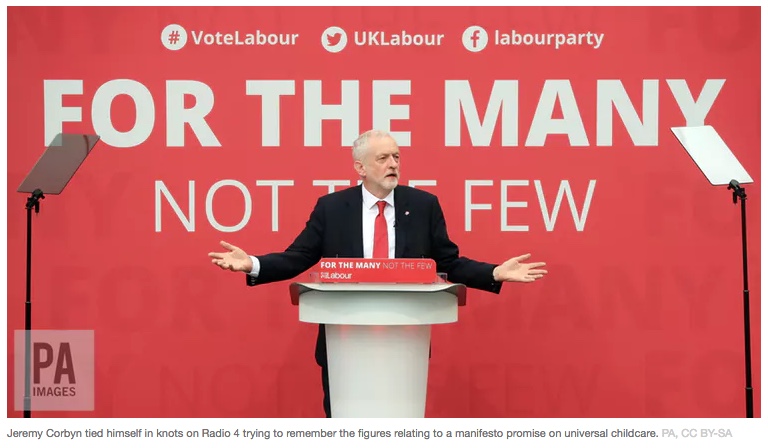When election manifestos are false promises

One clever way would be to announce that when you made those election promises you were not aware of the true situation because the previous government hid many things and since the new government was formed a lot of skeletons in the closet that were hidden from public knowledge have been discovered. Hence, in light of this new ‘evidence’, it is no longer possible to deliver those election promises as many problems first need to be sorted out.
NO HOLDS BARRED
Raja Petra Kamarudin

The word ‘manifesto’ is an Italian word derived from the Latin word ‘manifestum’, meaning plain, clear, obvious, visible, transparent, definite, distinct, self-evident, conspicuous, etc.
There are thousands of manifestos issued over the last 400 years since the word was first introduced into the English language in 1620. Amongst the more famous manifestos are the following:
* The United States Declaration of Independence (1776)
* The Declaration of the Rights of Man and Citizen (1789) during the French Revolution
* The Communist Manifesto (1848), by Karl Marx and Friedrich Engels
* The October Manifesto (1905) issued by Nicholas II in an effort to cease the 1905 Russian Revolution
* The Fascist Manifesto (1919), by Fasci di Combattimento
* The Oxford Manifesto (1947) describing the basic principles of Liberal International
* The Russell-Einstein Manifesto (1955), against nuclear weapons and war
* The New Hope for Britain (1983), better known as “The longest suicide note in history”, by the UK Labour Party
* Manifesto on Freedom and Democracy for Vietnam (2006)

This is what The Conversation, UK, has to say about election manifestos:
Specific, headline-grabbing promises in party manifestos are a fairly recent thing. It was not always so – and it is not something inherent in Britain’s parliamentary system. In fact, it is incompatible with it, and the emphasis on such promises has created a misleading impression of the proper role of politicians and parliament.
Under a set of legal and moral obligations, it is the responsibility of governments to govern in what they consider to be in the best interests of the country, rather than fulfil the promises and pledges of their party manifestos. Similarly, it is the responsibility of individual MPs to vote for proposed legislation and to support policies which they believe to be in the best interests of their constituents – and of the country as a whole.
Political parties publish manifestos and make promises, but it is parliament which passes legislation, not political parties. It is governments that govern, not political parties – meaning that the government is a group of specifically elected individuals from a political party, not the broader party itself.
The promises of political parties are empty because they do not have the ability or the authority to pass the legislation or to promote the policies they promise. These are the roles of parliament and government.
(The Conversation, UK: https://theconversation.com/uk)

In short, what the politicians or political parties promise during the election campaign is not binding or worth the paper it is written on. Legally, they are not required to fulfil those promises. In fact, they have absolutely no power to deliver those promises. Those promises were made merely as a vote-buying strategy.
Malaysians, somehow, have the impression that election manifestos are carved in stone. They are not, and as Prime Minister Tun Dr Mahathir Mohamad said, manifestos are not Bibles that you need to religiously comply with while the promises made in that manifesto are not The Ten Commandments that cannot be broken.
As it stands now, the Pakatan Harapan government has already broken almost all its election promises — and even the ones they kept (such as abolishing the GST) have not quite met their desired result (such as the cost of living coming down).

But then that is how the political game is played. You use whatever you can to garner votes and win the election and once you are in power you can wangle your way out of the sticky situation by clever rhetoric and distractions.
One clever way would be to announce that when you made those election promises you were not aware of the true situation because the previous government hid many things and since the new government was formed a lot of skeletons in the closet that were hidden from public knowledge have been discovered. Hence, in light of this new ‘evidence’, it is no longer possible to deliver those election promises as many problems first need to be sorted out.

